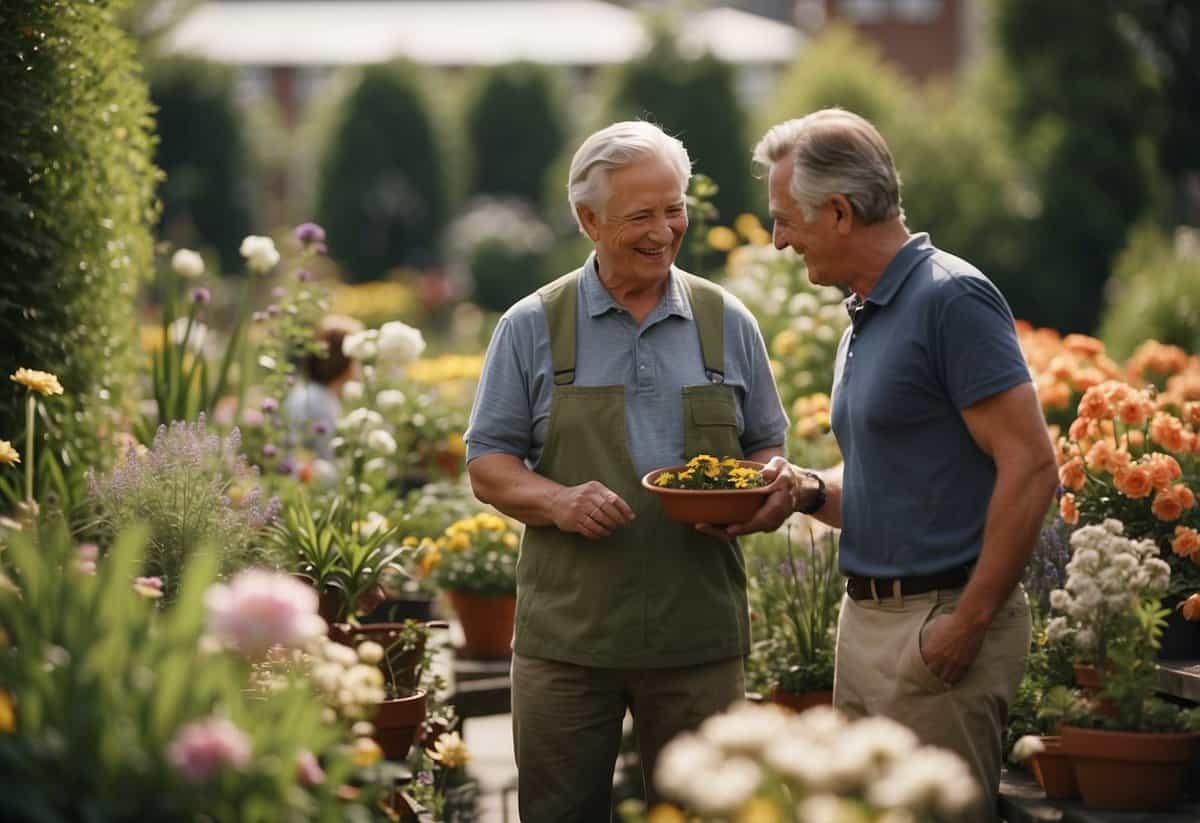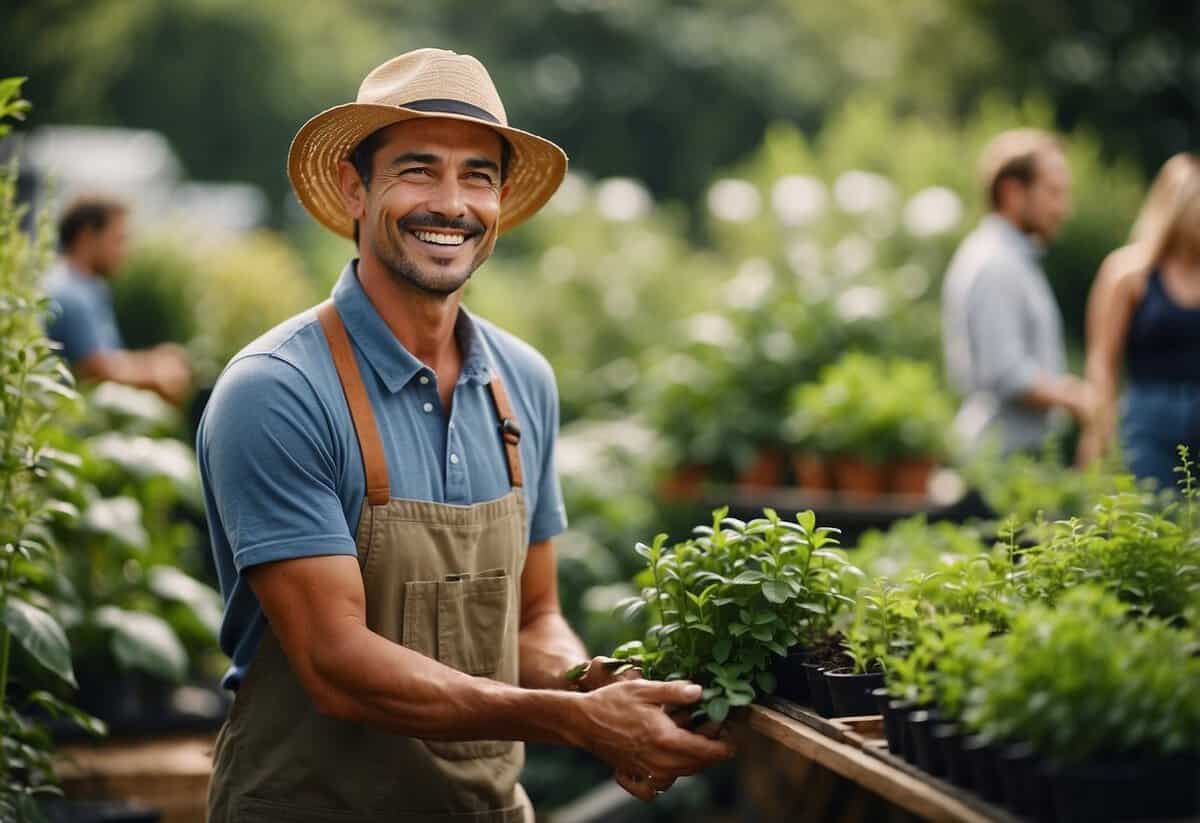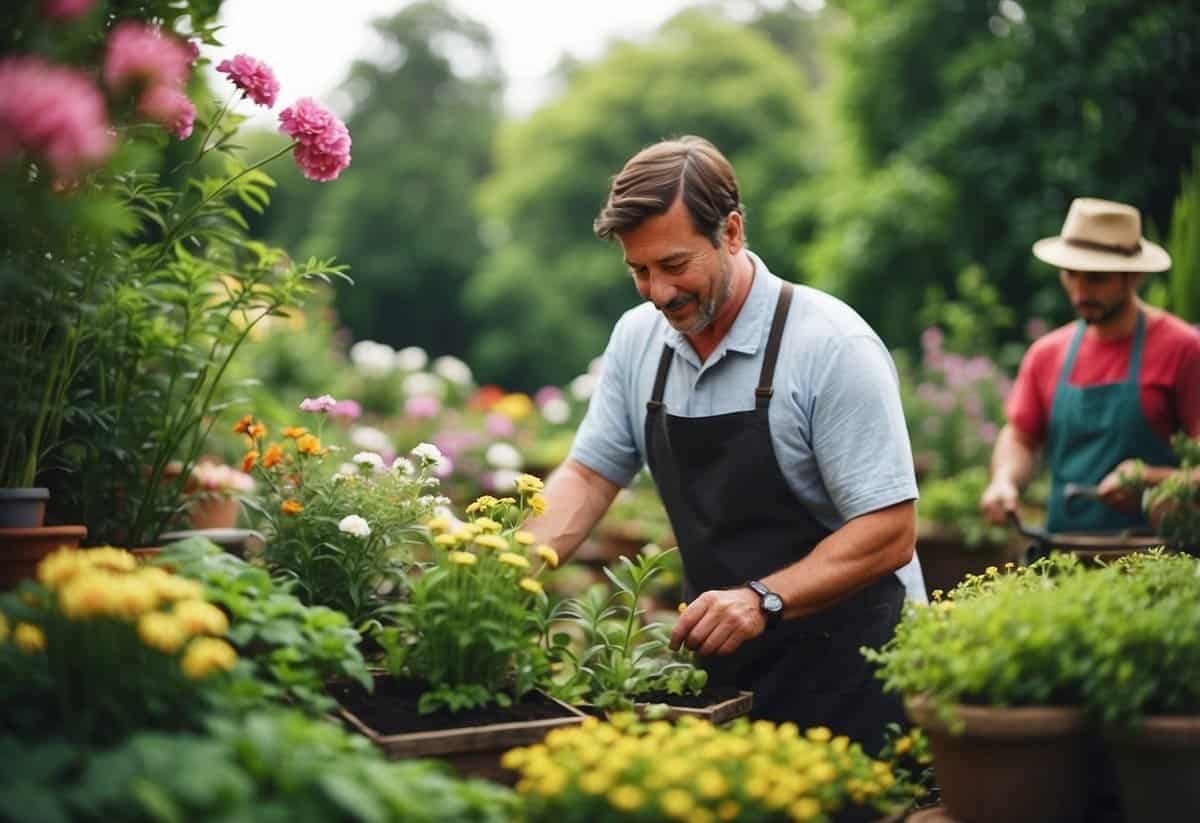Why Are Gardeners Happy? Discover the Joys of Nurturing Nature
Ever wondered why gardeners often seem so joyful? It’s more than just the act of planting seeds and watching them grow. Gardening provides a unique sense of accomplishment that boosts happiness. As you nurture your plants and witness their growth, you experience a deep connection with nature that transforms stress into joy.

This activity also encourages physical movement, which is known to release endorphins that make you feel happier and healthier. Spending time outdoors, under the sun, helps your body produce vitamin D, enhancing your mood. Working with soil and plants can significantly reduce stress and improve your mental well-being.
Moreover, gardening fosters a sense of community. Sharing gardening tips, swapping seeds, and showcasing your garden can strengthen your bonds with neighbors and friends. It’s this blend of nature, activity, and community that makes gardening a joyful and fulfilling pursuit.
The Joy of Planting and Growth

Gardening brings happiness through the direct connection with nature and the remarkable process of watching plants grow. These activities offer both physical and mental benefits that can significantly improve one’s quality of life.
Connection with Nature
When you garden, you immerse yourself in nature. Your hands touch the soil, you feel the texture of the earth, and this contact with the soil can calm your mind. It’s a break from the hustle bustle of daily life.
Planting seeds in your garden helps you feel a part of something larger. You are nurturing life from the ground up. Every time you care for your plants, you are in sync with the natural rhythms of the planet.
Being outdoors in the sunlight provides your body with essential vitamin D, which boosts your mood. The fresh air and the natural surroundings can reduce stress and promote feelings of well-being.
The Magic of Seeing Plants Grow
Watching your plants sprout from seeds and grow is truly joyful. Each stage of growth becomes a small triumph. You start with tiny seeds and see them transform into vibrant blooms or tasty vegetables. This visual progress brings a sense of accomplishment.
You learn to care for your plants, paying attention to how much water and light they need. This responsibility can teach patience and resilience. As you see your garden flourish, you can share the results with friends and family, enhancing social connections.
Harvesting fruits and vegetables you’ve grown yourself not only provides fresh food but also gives a deep sense of satisfaction. It’s rewarding to see and taste the fruits of your labor, bringing you closer to nature’s cycles.
Health Benefits of Gardening

Gardening not only brings joy but also offers various health benefits. These include improvements in mental health, physical activity, and the immune system.
Boost in Mental Health
Gardening can greatly improve your mental health. Tending to plants helps lower stress and anxiety by reducing the level of the stress hormone cortisol. Spending time outdoors increases serotonin levels, which improves mood and feelings of well-being. Engaging with the soil also introduces you to mycobacterium, a bacteria that may help reduce depression symptoms. The act of planting and nurturing plants provides a sense of accomplishment, which boosts self-esteem and mental resilience. Additionally, the beauty of a well-tended garden brings joy and fosters a peaceful state of mind.
Physical Activity Through Gardening
Gardening provides a great way to stay physically active. Tasks such as digging, planting, weeding, and watering offer low-impact exercise that benefits your whole body. These activities engage different muscle groups and improve flexibility and strength. For example, squatting while tending to plants works leg muscles, while lifting bags of soil and mulch strengthens your arms and back. Gardening also counts as cardiovascular exercise, increasing your heart rate and promoting better circulation. This physical activity contributes to overall fitness and can be enjoyable, making it easier to stick to regular exercise routines.
Gardening and the Immune System
Spending time in the garden can bolster your immune system. Exposure to sunlight while gardening helps your body produce vitamin D, which is essential for immune function. Fresh air and physical activity also enhance your immune response, making you less susceptible to illnesses. Furthermore, interacting with soil introduces beneficial microbes to your body, which can support a strong immune system. Regular gardening can reduce symptoms of chronic diseases and improve overall health, making you feel healthier and more energized. By nurturing plants, you are also nurturing your own body, fostering a strong and resilient immune system.
Social and Community Aspects

Gardening can bring people together, create new friendships, and strengthen communities. It offers opportunities to connect with others, share experiences, and build supportive networks.
Fostering Relationships and Community
Gardens, whether in your backyard or as part of a community project, are great for making new friends. When you garden, you often meet people with the same interests. Working together on garden projects can build a sense of teamwork and belonging.
Sharing tips, seeds, and plants with your neighbors can also boost social connections. You may find yourself exchanging gardening advice or even organizing small garden parties. These activities create stronger bonds in your neighborhood.
In addition, gardening can strengthen family relationships. Parents and children can spend quality time outdoors, working together on their garden. This shared hobby can teach patience, responsibility, and the value of hard work, making your family unit closer and more connected.
Community Gardens and Shared Spaces
Community gardens have a significant impact on social connections and community well-being. They provide a shared space where people from different backgrounds come together to grow vegetables and plants. These gardens often serve as a meeting place, bringing together the young and the old, long-time residents, and newcomers.
In areas where fresh food is hard to find, community gardens can also help address food security. They give residents access to healthy, fresh produce and reduce the need to travel far for groceries. This can foster a sense of pride and accomplishment among community members.
Moreover, community gardens create opportunities for volunteering and involvement in local activities. People can work together to maintain the garden, organize workshops, or host social events. These activities build a supportive network, enhancing the sense of community and belonging.
Community gardens can also enhance local green spaces. They turn unused or neglected areas into vibrant, productive spaces, improving the neighborhood’s appearance and benefiting everyone who lives there.
Environmental Impact and Sustainability

Gardening goes beyond just a hobby; it’s a way to help the planet and foster biodiversity. By focusing on ecological balance and sustainable practices, gardeners can play a key role in protecting nature and ensuring a healthier environment.
Gardening for Ecological Balance
By planting a variety of crops, you can help support biodiversity. Different plants attract different pollinators, such as bees and butterflies, which are important for pollinating many food crops, including tomatoes. When you plant native species and perennial plants, you create habitats for local wildlife and support the ecosystem.
Composting kitchen scraps and garden waste adds nutrients to the soil, making it rich and healthy. This reduces the need for synthetic fertilizers and helps in carbon storage, thus tackling climate change. Simple actions, like pulling up paving slabs and replacing them with flower beds, can make a huge difference by creating more green spaces that absorb carbon dioxide.
Sustainable Practices and Education
Sustainable gardening involves techniques that minimize environmental impact. For example, reusing gray water from showers can help save water and reduce waste. You can also practice crop rotation to maintain soil health and avoid depleting the same nutrients year after year.
Learning about sustainable gardening principles can make your garden more resilient. By adopting methods like organic gardening and avoiding pesticides, you protect the soil and water. Educating yourself and your community on sustainable practices can lead to widespread benefits, especially in urban areas and food deserts where fresh produce is scarce.
Using mulch, planting diverse crops, and conserving water are simple steps that can make your garden a sustainable haven. Through these practices, you help nurture plants and support the planet’s health.
Personal Development and Lifelong Learning

Gardening offers valuable life lessons, helping you become more patient and resilient. It also promotes continuous growth in knowledge and creativity.
Patience and Resilience in Gardening
Gardening requires patience. Plants don’t grow overnight. You learn to wait for seeds to sprout, flowers to bloom, and fruits to ripen. Each season brings its own set of challenges which you face head-on. This process helps you develop resilience as you adapt to different weather conditions, pests, and other gardening obstacles.
You also build emotional resilience. Each setback, such as a plant not thriving, teaches you to handle disappointment and try again. Overcoming these small hurdles fosters a positive attitude, encouraging persistence and enthusiasm in your hobby.
Expanding Knowledge and Creativity
Gardening is a continuous learning journey. Whether you are a novice or a seasoned gardener, there is always something new to learn. You might start with basic information about plant care and progress to advanced techniques like grafting or hydroponics. This quest for knowledge becomes a part of your lifelong learning.
Creativity blossoms in the garden. You experiment with different plant arrangements, try out various gardening styles, and even craft unique garden decor. This creative process not only makes your garden beautiful but also keeps your mind active and engaged. It’s a joyful form of self-expression that continuously evolves, just like your garden.
In the end, gardening nurtures both your heart and mind, providing joy and satisfaction through personal development and the pursuit of lifelong learning.







